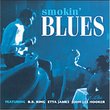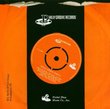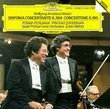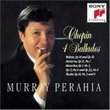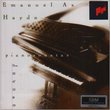| All Artists: Gustav Mahler, Simon Rattle, Berliner Philharmoniker Title: Mahler - Symphony 10 / Berliner Philharmoniker · Rattle Members Wishing: 0 Total Copies: 0 Label: EMI Classics Original Release Date: 1/1/1999 Re-Release Date: 6/6/2000 Genre: Classical Style: Symphonies Number of Discs: 1 SwapaCD Credits: 1 UPCs: 724355697226, 724355697257 |
Search - Gustav Mahler, Simon Rattle, Berliner Philharmoniker :: Mahler - Symphony 10 / Berliner Philharmoniker · Rattle
 | Gustav Mahler, Simon Rattle, Berliner Philharmoniker Mahler - Symphony 10 / Berliner Philharmoniker · Rattle Genre: Classical
Just as the Payne/Elgar Symphony No. 3 is not Edward Elgar's definitive statement, Mahler did not complete his Symphony No. 10. He did, however, complete the first movement in full score and the second in short score, whil... more » |
Larger Image |
CD DetailsSynopsis
Amazon.com Just as the Payne/Elgar Symphony No. 3 is not Edward Elgar's definitive statement, Mahler did not complete his Symphony No. 10. He did, however, complete the first movement in full score and the second in short score, while he left incomplete sketches for the remainder. Had he lived, Mahler would almost certainly have shaped the material further. This means that the performance edition prepared by Deryck Cooke in the early 1960s is not a completion, it's an orchestration of the short score left at Mahler's death in 1911. It nevertheless sounds very "complete," both in itself and as a summation of the romantic-epic 19th century German musical tradition. Hereafter, the France of Debussy and Ravel would lead the musical world, and Stravinsky's 1913 Parisian premiere of The Rite of Spring would turn it upside-down. Simon Rattle has recorded a fine version with the CBSO. In 1980, Rattle conducted the Symphony No. 10 in a highly acclaimed performance with the Bournemouth Symphony Orchestra, and this later version with the Berlin Philharmonic offers even greater expressive control and power. The tempos are slightly slower and, inevitably, the performances more musically eloquent. The excellent live sound omits all but the faintest background noise, and the grave beauty of the Finale becomes a deeply moving testament to a world long-since gone. --Gary S. Dalkin Similar CDs
Similarly Requested CDs |
CD ReviewsOnce again I am a Cooke convert. And thoroughly Rattle'd. Bob Zeidler | Charlton, MA United States | 11/16/2000 (5 out of 5 stars) "I am one of those old enough to have been actively tuned in to the late-'60's release of Eugene Ormandy's pioneering recording, with the Philadelphia Orchestra, of the original Deryck Cooke "performing version" of Mahler's 10th Symphony. While not the last word as a finely-wrought or subtle performance, it won me over to the concept that there was merit in hearing Mahler's thoughts as they existed before he could finish the work prior to his premature death. Recognizing his mortality, this was to have been his final "leave-taking" work, part of a trilogy in which "Das Lied von der Erde" and the 9th Symphony represented his farewells to nature and the world at large and to his friends and to music, and this 10th Symphony a special farewell to his wife, Alma. For many years, she did not release the private materials that Mahler had left behind, and resisted all efforts to permit "completion" of the work. But, by 1960, the statute of limitations on his estate expired, and, a few years later, she reconsidered her long-held action and relented, making the materials available for scholarship. It was at this point that Cooke, and then Ormandy, entered the picture. Parts of the score were so sparse as to represent a risk of interpolative "tinkering" by those who endeavored to put flesh on the skeleton, and Alma Mahler's fears were not unfounded when "reconstructors" such as Mazzetti and Carpenter did major damage to Mahler's sparely-indicated intent by adding too much of their thoughts and not letting Mahler's notes speak for themselves. But Deryck Cooke did a masterful job of stepping aside, letting Mahler's voice come through. Over the rest of his own life, Cooke was to go back again and again with second and third thoughts and more, all in an ongoing scholarly effort to let the music speak for itself. This new Rattle/Berlin Philharmonic Orchestra performance represents Cooke's final thoughts on Mahler's final symphony, and it is revelatory. Fast-forward to late 1999. Benjamin Zander performs the 9th Symphony, conducting the Philharmonia Orchestra, on a Telarc release that is so monumentally staggering that this reviewer has major misgivings, for about a year, regarding whether anyone, Cooke included, had been able to do justice to the 10th Symphony, so "final" is Zander's performance of the leave-taking of the Finale, heartbreaking yet full of repose and peaceful resignation. And there matters stood, for months, until my recent acquisition of this Rattle performance. It is important for me to state that I am NOT a Sir Simon Rattle acolyte, finding him, for the most part, to be somewhere "in the middle of the pack" for his earlier Mahler work, including his previous foray of the 10th with the Bournemouth Symphony Orchestra. But this performance is different, and special, in the same way and to the same extent, that Zander's Mahler 9th is. It has totally won me over and once again restored my faith in the scrupulous honesty and integrity of Cooke's motives and efforts. It, like Zander's 9th, is a recording of a live performance, though one would never know it to be. (It was rumored that EMI would not underwrite a studio recording of this work, so we should be thankful to Rattle for insisting on the release of this live performance.) In "Das Lied von der Erde" and the 9th Symphony, and this 10th Symphony as well, everything leading up to the final movement is just prelude to the farewell. Each farewell is a miracle in itself, but the Finale of the 10th is special simply because it is both Mahler's farewell to Almschi and the one movement of the 10th where Cooke tread on very dangerous ground, given the paucity of materials present in the score. (While Cooke had to work around many missing details, Mahler had in fact indicated that the first solo, once past the transition from the Scherzo, be assigned to the flute, and it is gorgeous beyond description.) Rattle thoroughly vindicates Cooke's integrity and judgement with a performance that will stand the test of time. The concluding Coda, just as heart-breaking (if not more so, given its circumstances) as the closing measures of the Adagio of the 9th, is equally full of repose, but, more importantly, full of a sweetness that lingers long after the final pianississimo dies out. At long last, a Mahler 10th that can take its place beside Walter's "Das Lied von der Erde" and Zander's Mahler 9th. And my undying gratitude to Deryck Cooke and Sir Simon Rattle. Bob Zeidler" Stick With Rattle's Previous Mahler 10th M. Stoltenberg | Phoenix, AZ USA | 06/15/2000 (2 out of 5 stars) "After having listened to now 6 renditions of Mahler's 10th, I have eventually become convinced that Deryck Cooke did an admirable thing in expanding and extrapolating on Mahler's only completed first movement and skeleton of the other 4 remaining movements in this 10th symphony.I think Rattle's previous outing on EMI with the Bournemouth is a better interpretation of the 10th. I found this most recent recording to possess the following problems: (1) it seemed so much quieter than the previous recording, I had to turn my volume control up all the way until I could hear anything; (2) the most dramatic moments in the symphony such as the ending of the 1st movement is played softer and smoother and loses the emotional and spiritual power it had on the earlier rendition, and (3) the opening of the last movement is played so pianissimo and slowly it does not even convey any quality at all except that of losing consciousness and falling asleep.Rattle should try to find and listen to an out of print CD recording on Virgin by Karl Anton Rickenbacker with the Bamberger Symphony performing symphonic fragments of Mahler. The 3rd and last track includes the most gorgeous and beautifully played performance of the 1st movement from the 10th I have ever heard. Rickenbacker proves that you can play this movement very slowly, loud enough to hear, beautifully phrased, and emotionally powerful. It comes in at an unbelievably expansive 32 minutes and avoids deliberateness and achieves spiritual ecstasy. Now that's a recording I'd like to see Virgin reissue. In fact, my biggest dream is that Virgin would ask Rickenbacker and the Bamberger to do the whole 10th in all its breathed-out glory.I think EMI took a 2nd crack at the 10th with Rattle because some reviews of the earlier try said that the recording utilizing Grundig technology presented some problems. After listening to that recording several times, I cannot agree. Even though this 2nd recording may be slightly improved in string ensemble quality and a very nice and quiet live performance, it loses in energy and emotional power what the 1st try had. It was a VERY GOOD recording and I'm holding on to it and think Rattle did a great job the first time around. Bravo! This second one, however, I just cannot recommend.Mahler was said to have changed his mind on his death bed when he asked his wife not to destroy his manuscript of his 10th symphony. He intended that someone might attempt to "do something with it" and Alban Berg and Ernst Krenek both took a whack at it. Deryck Cooke seems to have gotten the furthest.After several hearings of a couple of versions and studying the liner note history of the piece's spiritual journey, I appreciated Deryck Cooke's disclaimer that his version was NOT a finished product, but a performing version. I have come to understand this subtitle to mean that this is an orchestrational experiment to allow an audience to hear the symphony in an elaborated form what it could possibly of sounded like if Mahler had been allowed to compose a bit more of it. This is fine, because I find the form it is now in to almost maintain and hold sacred the mystery of the closing bars of the 9th. Deryck Cooke emphasizes the eventual tone of triumph at the end of the 5th and last movement and allows poignant space for more meditation and contemplation of the piece. The 10th inevitably seems to be heading to the same unknown and mysterious regions of the 9th." An improvement? Darius Battiwalla | 06/25/2000 (4 out of 5 stars) "Like other reviewers, I was familiar with Rattle's earlier recording (with the Bournemouth SO, not the CBSO as someone else mentioned) and was eager to hear this - and on the whole was not disappointed. Of course you'd expect the Berlin violas to be a bit better in the long opening solo - but actually that's all they are: a bit better. Of course the recording is finer - for instance, one drawback of the earlier one was that you could hear the faders going up and down for the big drum strokes that open the finale. And on the same point, this recording makes the final drumstroke of the fourth movement double as the opening of the fifth - much better than on the earlier recording where you heard it twice. Musically is it any better? Well all the slow music has become broader and sometimes reduced in intensity - the long slow passage which ends the symphony doesn't quite hang together for me, and the great violin outburst right at the end doesn't to grow out of what's gone before. Faster passages - particularly in the third and fourth movements - have more urgency and drive and benefit from the better recording. The greatest surprise for me came at the climax of the last movement where Rattle has changed the bass note of the great chord which begins the long trumpet high A. If one takes the sketch literally then he's right to do so - but I can't convince myself of it yet. If you're not sure if you should buy it or not, then buy it - you're bound to find something worthwhile in it. Personally I'm glad to have both recordings of this wonderful piece which tantalizingly shows the different direction Mahler was taking after the Ninth."
|

 Track Listings (5) - Disc #1
Track Listings (5) - Disc #1
